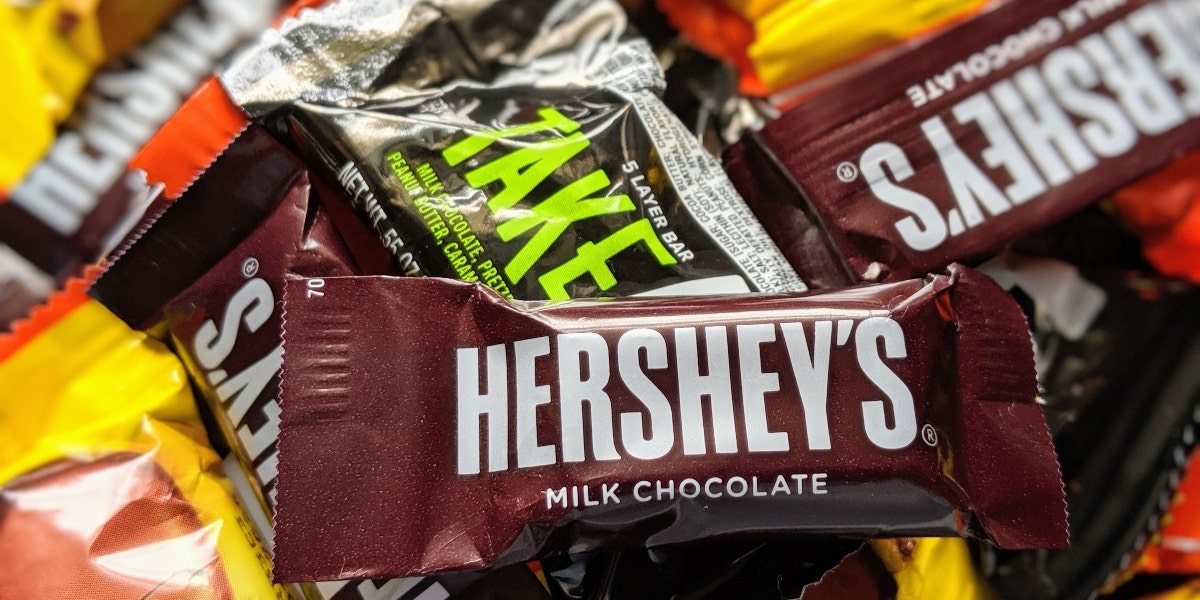New Lawsuit Claims Nestle, Mars & Hershey Use Cocoa Farmed By Trafficked Children In West Africa
Beware of where your Halloween candy comes from.
 Christopher Sciacca / Shutterstock
Christopher Sciacca / Shutterstock Seven of the largest cocoa companies in the world are in a legal battle over the companies’ responsibilities regarding the use of child labor in the cocoa supply chain.
The court papers allege that the companies have continued to allow the use of child labor in the cocoa supply chain so as to have uninterrupted access to cheap cocoa.
The lawsuit has been brought by eight Malians who claim to have been trafficked to Cote D’Ivoire.
Hershey, Mars and Nestle are accused of benefiting from child labor.
Hershey, Mars, Nestle and other massive companies in the cocoa industry have purportedly been trying to eliminate child labor in dangerous conditions since the beginning of the millennium.
The companies originally made their pledge to eradicate dangerous child labor from their cocoa supply chains in 2001 under the Harkin-Engel Protocol, also known as the Cocoa Protocol.
The industry missed its original deadline, to reduce child labor in Cote D’Ivoire and Ghana by 70%, in 2005.
RELATED: Why Banning Critical Race Theory Likely Means Forgetting The Tulsa Massacre Ever Happened
In the last 15 years, the deadline has been extended repeatedly and little has changed.
Numbers vary from source to source but studies indicate that as much as two-thirds of the world’s cocoa supply comes from Cote D’Ivoire and Ghana in West Africa.
Horrifically, as stated in a 2015 U.S. Department of Labor report, 1.56 million children are put to work in the production of cocoa in Ghana and Cote D’Ivoire.
Every chocolate bar handed out on Halloween this year has a good chance of being the product of child labor.
There’s a potent irony in handing candy made by the labor of children who ought to be in school to smiling children dressed up for Halloween.
The same Department of Labor report indicates that almost half of all of the children involved in work in the cocoa supply chain work in hazardous jobs and conditions.
These children often work with machetes, carry heavy loads and handle controlled burns all the while receiving little in the way of compensation.
Cocoa production has grown by over 60% since the late 2000s and shows no signs of slowing down.
RELATED: The Tragic History Of American Indian Boarding Schools — And Why You Should Care
The cocoa companies blame local farmers for exploiting children.
Terrence Collingsworth, the lawyer bringing the case against the cocoa companies says of the cocoa industry’s defense, “Then they stand up in court and say we’re just buying chocolate, we don’t have anything to do with what’s going on there. In their most recent filing, they say they are no different from a consumer of a chocolate bar.”
It doesn’t take a lawyer to detect the flaws in this argument.
It’s true that the consumer has access to luxury products because of the cocoa industry, but the cocoa companies are the ones that directly monetarily benefit from buying a resource that is made cheaper by child labor.
The cocoa companies then sell that on to a public that is under the impression that said companies are at least making an effort to prevent dangerous child labor from infesting their supply chain.
Efforts which, if they are being made at all, haven’t seemingly had any significant effect in 20 years.
To say that the cocoa industry is only as responsible as their unwitting customers is a totally inappropriate and incorrect comparison.
Dan O'Reilly is a writer who covers news, politics and social justice. Follow him on Twitter.

